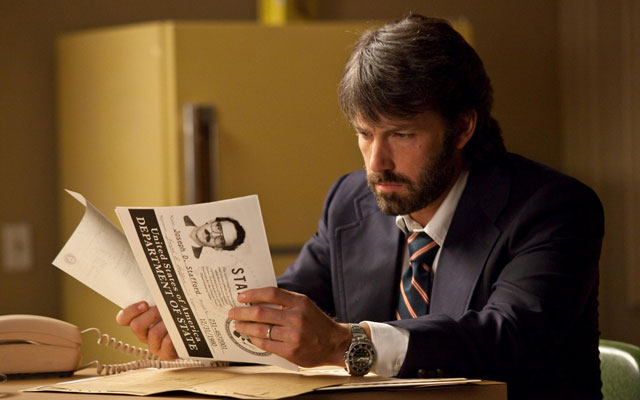Sunday night, Argo—the Ben Affleck film portraying the rescue of U.S. Embassy staffers from Iran—won best picture at the Oscars. Iran may have boycotted this years’ Academy Awards by pulling its film submission, but it certainly didn’t ignore Argo’s Oscar win. The biggest winner may have been U.S. public diplomacy efforts, given Argo’s recent underground popularity in Iran.
Affleck was ecstatic, thanking the people of Iran “who live under terrible circumstances.” The Iranian government wasn’t so pleased. According to an Iranian state media opinion piece, “The only award the makers of Argo deserve is a criminal conviction for crimes against humanity.”
Argo, a mostly true story, portrays the escape of six American diplomats from Iran following the 1979 U.S. Embassy seizure in Tehran. The CIA smuggled the diplomats out of the country disguised as a fake film crew. (Read the declassified CIA account here.)
To most, Argo is a popular film about the undercover escape of endangered diplomats. But to the Iranian government, Argo and its Oscar are pure U.S. political propaganda. Iranian state media portrayed Argo as an “advertisement for the CIA…replete with historical inaccuracies and distortions” and “against Iran and artistically invalid.”
Iran’s first problem was with Argo’s subject, which obviously doesn’t paint the Iranian revolution in quite the same light as President Mahmoud Ahmadinejad and Ayatollah Seyyed Ali Khamenei prefer.
“The Iranophobic American movie attempts to describe Iranians as overemotional, irrational, insane, and diabolical while the CIA agents are represented as heroically patriotic,” Press TV stated.
Iran’s second problem relates to Michelle Obama, who announced Argo’s Oscar appearing via video feed. Iran saw the First Lady’s Oscar participation as politically motivated.
Iran banned Argo, outlawing showings in theatres and forbidding the sale of DVDs. Nevertheless, Argo is rampant within Iran; bootleg DVDs can be purchased in Tehran for about a dollar. Argo—complete with Persian subtitles—is the biggest hit in years for underground DVD sellers.
As The Wall Street Journal wrote, “Argo is taking Tehran by storm, circulating hand to hand and house to house. Young hipsters in northern Tehran, fruit peddlers in the bazaar, teachers in the suburbs, parliamentarians, and members of the plainclothes Basij militia loyal to the regime have seen it.”
Argo’s influence concerned Iran enough to plan its own anti-Argo film. Iran’s Art Bureau is making “a big cinematic project…to give a true image of this historical event distorted in the American movie Argo.” The movie, called The General Staff, will be “unlike the American version which lacks a proper view.”
Perhaps Argo is filling a vital public diplomacy role where Voice of America’s Persian network (PNN) has been ineffective. Effective public diplomacy need not come from government broadcasting networks. Cultural communications including film, literature, and even popular products can communicate the United States’ diversity of discourse and traditions at least as effectively as official State Department broadcasting and online presence can. Popular diplomacy, like Argo, has the potential to promote further intercultural communication between Iran and the West.
